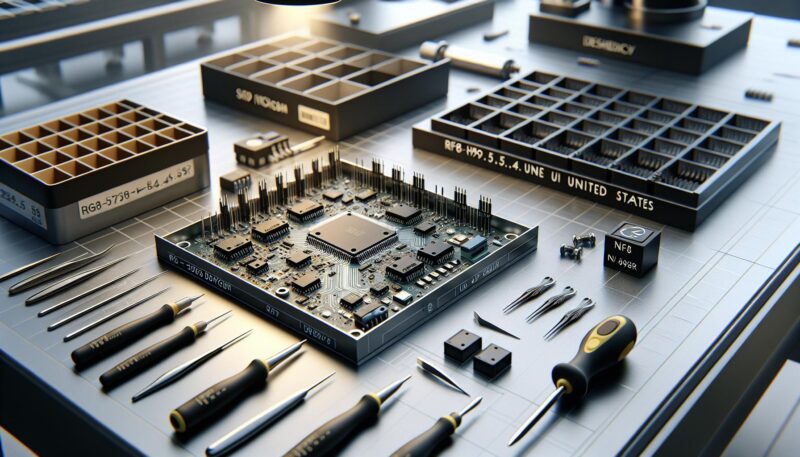
Decentralised Autonomous Organizations (DAOs) on Bitcoin can help businesses create an innovative way to transact with more trust and security. By leveraging the latest DeFi, DAOs and NFTs, these organisations can eliminate the need for intermediaries and operate in a trustless manner based on the Bitcoin blockchain.
Recently, Trust Machine announced its successful close of a $150M Series C venture round, to expand its suite of Web3 tools and infrastructure on top of Bitcoin.
In this article, we will discuss the various possibilities and applications of DAOs on Bitcoin.
What is a Decentralised Autonomous Organization (DAO)?
A Decentralised Autonomous Organization (DAO) is an organisation that is run on programming code, typically utilising blockchain technology such as the Bitcoin network. These organisations are designed to facilitate complex decisions and financial transactions without human interaction.
The purpose of a DAO is to make economic activities in a more equitable, efficient and secure manner by reducing the costs associated with traditional corporate structures. By leveraging the distributed ledger technology embedded in Bitcoin, DAOs remove intermediary intermediaries from decision making processes while promoting transparency through decentralisation and enabling consensus-building within its members.
Unlike traditional corporations, which are organised around ownership and hierarchy, a Decentralised Autonomous Organization creates consensus among its members by implementing smart contracts on top of Bitcoin’s distributed ledger technology. These smart contracts enable participants to conduct many types of transactions – including those related to rights management, asset issuance and transfers – autonomously based on agreed upon rules or parameters set out by their founders. Participants can also access private keys that grant them individual control over assets secured by these smart contracts.
What is the Trust Machine?
The Trust Machine, or blockchain technology, is a distributed database system that functions as a digital ledger. It records transactions and stores them in batches, also known as blocks. Each block contains certain data and a hash that links it to the previous block—forming an immutable information chain.
In this data chain, users can record cash or equivalent assets safely and securely by transferring ownership from one party to another without needing an intermediate (third) party. In addition, this structure eliminates the need for financial intermediaries or middlemen such as banks, enabling peer-to-peer (P2P) transactions between users without relying on third-party trust.
From this backdrop comes the concept of Decentralised Autonomous Organizations (DAOs), where computer code that runs on the Ethereum blockchain can autonomously execute many elements essential to business operations ranging from membership administration to employee compensation. By taking out traditional overhead costs, DAOs can reduce costs while creating more efficient forms of transaction execution. As well as allowing users to collaborate without needing central authority – improving the trust dynamic between people – blockchain technology can also provide efficient methods of expanding business operations while giving access to new markets globally at any time/anywhere offering increased transparency, immutability and security with every transaction recorded on its respective ledger.
Benefits of DAOs on Bitcoin
Decentralised Autonomous Organizations (DAOs) are a revolutionary concept that is being increasingly adopted on the blockchain. DAOs are decentralised organisations governed by a consensus mechanism and run by rules encoded in smart contracts. Their decentralised nature provides numerous benefits to users, particularly when built on Bitcoin.
In this article, we will explore the advantages of DAOs on Bitcoin and how they drive innovation in the DeFi, DAOs and NFTs space.
Increased Security
Decentralised autonomous organisations (DAOs) powered by Bitcoin can provide enhanced security to their users. DAOs are organisations governed by autonomous smart contracts on an immutable blockchain such as Bitcoin. Each decision or action taken in a DAO must be approved via a consensus of stakeholders thereby eliminating the need for any centralised authority or control. This means that the risk of data breaches, theft, and fraud are considerably reduced because no single party can take control of the organisation.
The increased security overlaps many areas such as data storage and processing, monetary transactions, governance, compliance checks, asset ownership verification, etc., proving an indispensable feature for any organisation dealing with sensitive information. In addition to ensuring that unauthorised changes cannot be made unnoticed, cryptographic technologies provide end-to-end encryption so that every transaction remains secure and verifiable in real time. As a result, all parties involved in a DAO will benefit from complete transparency throughout their operations and governance processes.

Reduced Costs
One of the primary benefits of adopting Decentralised Autonomous Organizations (DAOs) on Bitcoin is that it helps to reduce operational costs. Traditional corporate structures are expensive and require a lot of resources to maintain, but with a DAO no central authority is required to manage the organisation and its operations. Funds can be managed digitally and transactions can occur with cryptocurrency, reducing operational costs significantly.
The increase in efficiency brought by the adoption of DAOs also reduces time spent on carrying out tasks involved in business operations, granting entrepreneurs more time to focus on being productive while also reducing labour costs. In addition, transactions become much faster as they are recorded almost immediately on a secure and immutable global ledger, preventing issues related to double-spending or unauthorised access to funds.
The decentralised nature of DAOs offers its users high security against malicious attacks since no single point or user is unable to potentially damage the system without being noticed. This eliminates external threats associated with organisations that rely heavily on central servers for transporting data or maintaining records, leading to improved cyber-security for networks built on decentralised systems such as Bitcoin’s blockchain technology.
Improved Transparency
Decentralised Autonomous Organizations (DAOs) on Bitcoin offer several advantages compared to traditional corporate structures, particularly in terms of transparency. However, for a DAO on Bitcoin to succeed and make decisions, it must rely on its decentralised participants to make transparent decisions.
The blockchain technology at the core of DAOs ensures that all records are immutable and tamper-proof, creating an ideal environment for improving transparency in decision-making processes. DAOs are also usually organised around polls or votes where all participants can express their opinions on how the organisation should move forward — meaning no one player can take control and make decisions without the consent of the whole community. This makes it much simpler for organisations to collaborate and improve trust between members and stakeholders, customers or other third parties.
Ultimately, this leads to increased accountability for those involved in making decisions for a DAO, further enhancing its ability to be transparent with those it serves and interacts with. This level of trust building can benefit individuals and organisations connected to the DAO almost immediately — building a stronger foundation that will support growth even further down the line.

Challenges of DAOs on Bitcoin
Decentralised Autonomous Organizations (DAOs) are a type of organisation that operates independently without the need for a central authority. They are becoming increasingly popular due to their potential to revolutionise business, especially when powered by blockchain technology.
While they come with many advantages, they also present certain challenges when run on Bitcoin. Let’s explore the hurdles of DAOs on Bitcoin.
Regulatory Uncertainty
Decentralised Autonomous Organizations (DAOs) are run by coded computer protocols based on specific rules and can replace or supplement traditional governance structures. One of the primary benefits of a DAO is its potential for greater transparency, which in turn strengthens trust among participants. However, there is an element of regulatory uncertainty that must be taken into consideration.
Due to the decentralised nature of running DAOs on Bitcoin (or other blockchain networks), it can be difficult to determine which jurisdiction’s regulations and laws would apply to these so-called “smart contracts.” Most nations do not have explicit regulations regarding the operation of DAOs, making it difficult to know how exactly regulators will view them. There are also questions about how anti-money laundering (AML) and counter terrorist financing (CTF) requirements would apply, since many DAOs don’t have identifiable entity owners or operators.
This difficulty in determining what laws apply may make some business owners hesitant about using or engaging with a DAO. Additionally, since some regulations vary from country to country, no single set of rules is likely to apply uniformly across different jurisdictions. Thus, businesses must consider potential legal risks after launching a DAO under various applicable governing laws.
Lack of Expertise
One of the main challenges of deploying Decentralised Autonomous Organizations (DAOs) on Bitcoin is lack of expertise. Since DAOs are complex entities, they require in-depth knowledge from members to maximise the potential offered by their decentralised structure. Unfortunately, there are few people with adequate knowledge, who can set up and maintain such systems.
Furthermore, to understand how DAOs work, developers need knowledge about core aspects such as cryptography, consensus algorithms and distributed systems. For example, a blockchain developer needs to know how proof-of-work and proof-of-stake algorithms tackle consensus problems; how smart contracts can be coded securely; and the principles behind distributed networks of computers. Without such expertise, it is difficult for developers to set up and manage DAOs optimally on Bitcoin’s blockchain.
Moreover, those in the DAO market may lack important knowledge due to their unfamiliarity with Bitcoin technology and its regulations compared with more established financial markets. For instance, while retail investors understand equities or bonds relatively well thanks to decades of U.S. SEC disclosure requirements that help educate investors on different investments available in traditional markets; they may not have access to as much actionable information when it comes to investing into a DAO as many remain decentralised entities without investment disclosures or restrictions put in place by central authorities like regulators or stock exchanges etc., which generates additional risk for investors due to increased uncertainty surrounding investments into any given project/DAO.
Limited Scalability
The Bitcoin blockchain, the underlying technology that powers decentralised autonomous organisations (DAOs) on Bitcoin, can process a maximum of seven transactions per second. Unfortunately, this presents a significant obstacle to the scalability of DAOs running on the network as it may not be capable of supporting highly active and complex organisations without significantly increasing transaction fees or negatively affecting performance.
Additionally, since the transactions are stored permanently on the blockchain, this can lead to inefficiencies in storage space and computational processing power when more complex functions are introduced into DAO platforms. This lack of scalability could determine whether or not a DAO platform is attractive to participants, as many users will choose a simpler platform if an overly complicated one cannot deliver an adequate user experience.

DeFi, DAOs and NFTs on Bitcoin? Trust Machine Raises $150M to Expand Web3 on BTC
In March 2021, The Trust Machine, a global leading blockchain infrastructure provider, raised $150 million in funding to expand Web3 on Bitcoin. This move is expected to further accelerate the DeFi and DAO space on Bitcoin, and create a new wave of NFTs on the world’s largest cryptocurrency.
In this article, we’ll discuss The Trust Machine’s fundraising and its impact on the DeFi, DAO, and NFTs space on Bitcoin.
$150M Investment
Recent news from the blockchain industry has highlighted that a group of high-profile investors have committed upward of $150 million to developing Decentralised Autonomous Organizations (DAOs) on Bitcoin. This new venture by an eclectic group of investors includes some of the most notable names in tech such as Andreessen, Polychain, MetaStable Capital and more.
The trust machine, envisioned by Ethereum founder Vitalik Buterin in 2013, was created to enable decentralised applications (DApps) and autonomous organisations, while giving users control over their assets and data. This evolution has come full circle since the launch of Ethereum’s smart contracts and DAOs in 2015, with this latest investment helping to accelerate the evolution of Web3 into mainstream usage.
Many experts believe that with this injection of resources and support, we will start seeing a much wider adoption for many trustless protocols such as Bitcoin-based DeFi, NFTs and global OTC trading platforms. Furthermore, it is seen that DAOs on Bitcoin lay out a system where participants can capitalise on their concepts without being hampered by traditional market forces which could eventually bring about global asset liquidation powered by digital coins minted often from nothing but imagination, computational skills and will power.
With this major financial commitment towards advancing decentralisation through DAOs on Bitcoin we can expect cutting edge projects created for user self-sufficiency across all industries to become extremely common in our daily lives over the coming months.
Integration of DeFi, DAOs and NFTs
The Trust Machine’s expansion of Web3 on Bitcoin (BTC) continues to bring new exciting capabilities through its applications of nascent technologies such as DeFi protocols, Decentralised Autonomous Organizations (DAOs) and Non-Fungible Tokens (NFTs). These emerging solutions can be used to create novel and powerful digital financial products, such as tokenized loans and interest bearing accounts, without a centralised authority.
Additionally, DeFi can be used to build sophisticated decentralised voting systems and smart contract platforms for asset management.
DAOs leverage blockchain-enabled governance mechanisms to manage various activities digital assets, ranging from compliance monitoring to farming rewards. DAO development teams can write code that instantiates organisational logic borrowed from the open source community such as Aragon and District 0x, or proprietary code specific to their needs. By allowing web 3 projects like The Trust Machine’s BTC layer easier access, DAO use cases broaden more quickly than ever before while still being closely regulated within the management structure of Blockchain Protocols.
Decentralised finance has also been on the rise due to NFTs which are unique digital tokens that cannot be replaced with exact copies and hold tangible value similar to physical artefacts by utilising Ethereum (ETH) & other blockchains Smart Contracts ecosystems for them operate and create an authentic permanent identity for digital assets that have been verified across multiple sources-around-the-web biometrics data points. NFT technology is an integral part of creating wonderful experiences involving cartography artwork, textiles + fabric designs that serve valuable technological purposes; Either containing information through tokens or being used as economic payment instruments within a larger ecosystem ‐Thus creating bridges between real world use cases + moving digital commerce a step further .
Potential to Unlock Billions of Dollars
The recent development of a new type of trustless network – Decentralised Autonomous Organizations (DAOs) – is the biggest potential to unlock billions of dollars worth of innovative applications on Bitcoin. This new type of decentralised trust machine is powered by an expanded version of Web3, allowing developers to build distributed systems that can automate and secure activities without needing a centralised third party.
The incredible potential for this model is now beginning to be unlocked, thanks to the introduction of DAOs that are automating contracts and capable of acting as autonomous participants who can process complex activities without human oversight. This could potentially revolutionise various aspects within the financial industry, ranging from banking applications such as loans and mortgages to insurance offerings, all the way up to consumer loyalty programs and crowdfunding activities. These services could eventually become commonplace with this expansion in web3 and DAO capabilities on Bitcoin.
Additionally, blockchain-based platforms like Bitcoin also offer solutions to tackle issues related to security and data authenticity on one hand. At the same time, applicability across business boundaries remains consistent through loose coupling & enforced contract rules on Ethereum & other similar technologies. Ultimately, unlocking DAOs will bring about revolutionary improvements in scalability and privacy offered through new blockchain-related services built on top of both networks, allowing them to become more integral than ever before – not just in finance but throughout many different industries.












